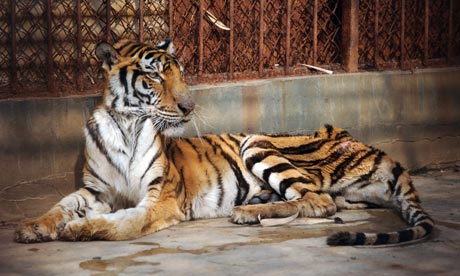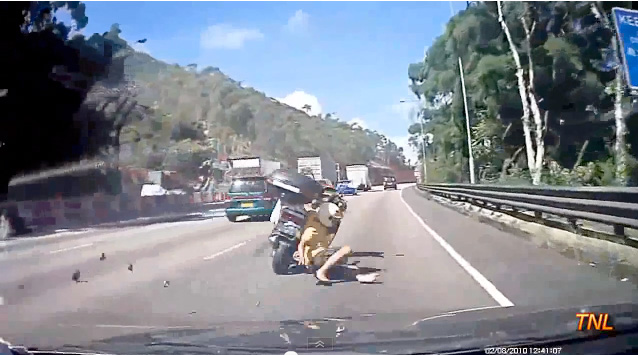 A malnourished tiger in a cage at Xiongsen Tiger and Bear Farm. Photo via The Guardian.
A malnourished tiger in a cage at Xiongsen Tiger and Bear Farm. Photo via The Guardian.
by Christine Kim
A cable released by WikiLeaks yesterday revealed that a U.S. diplomat, disguised as a Korean tourist, went undercover at one of China’s so-called tiger farms.
According to the cable, dated July 12, 2007, the U.S. diplomat investigated Xiongsen Tiger and Bear Farm, known for breeding tigers and black bears in Southern China.
The diplomat witnessed cruelties the animals endured and said tigers were also sold for medicinal purposes. By posing as a Korean, the officer gained the trust of the sales personnel. It was unclear what the diplomat’s actual ethnicity is.
The Guardian (U.K.) reported:
“The staff stated that up to three tour groups of Koreans came a day, numbering more than 30 in each group.The Koreans were among the most enthusiastic purchasers of both the black bear bile and the tiger wine.” The price of the bottles ranged from 80-896 yuan.
The visitor to the farm – which has more than 1,000 tigers in its cages – described the spectacle of a tiger killing an ox in a “training cage” purportedly set aside as a training area for animals that are to be introduced to the wild. But most of the animals appear tame and some were used in circus-like entertainment shows, where they were beaten. Black bears – kept for their bile – were also made to join a mock Chinese marriage procession where they acted as bride and groom, he noted.
Although the unnamed diplomat — who is referred to in the documents as “Econoff” — said the staff denied serving tiger meat and selling tiger skin (contrary to reports from locals), he concluded the cable on the following note:
“The commercial nature of the farm was troubling. The large number of endangered tigers and bears present with no current plans to reintroduce to them into the wild raises concern regarding the motivation of such a farm. Given the cost of feeding and caring for the numerous tigers, lions and bears, it appears highly unlikely that the farm would be able to meet its costs based solely on the admission price and government subsidies.”
Even four years later, those issues remain prevalent.
[ad#graphic-square]







